When it comes to choosing the perfect countertop for your kitchen or workspace, resin countertops are an increasingly popular option due to their durability and versatility. Resin countertops are made by mixing specific proportions of resin with a hardener, which transforms the liquid mixture into a solid and resilient surface. In this comprehensive guide, we will explore two primary types of resin countertops: epoxy resin and phenolic resin. We’ll discuss their respective pros and cons, things to consider and alternatives, helping you make an informed decision for your countertop needs in your home or clinical lab.
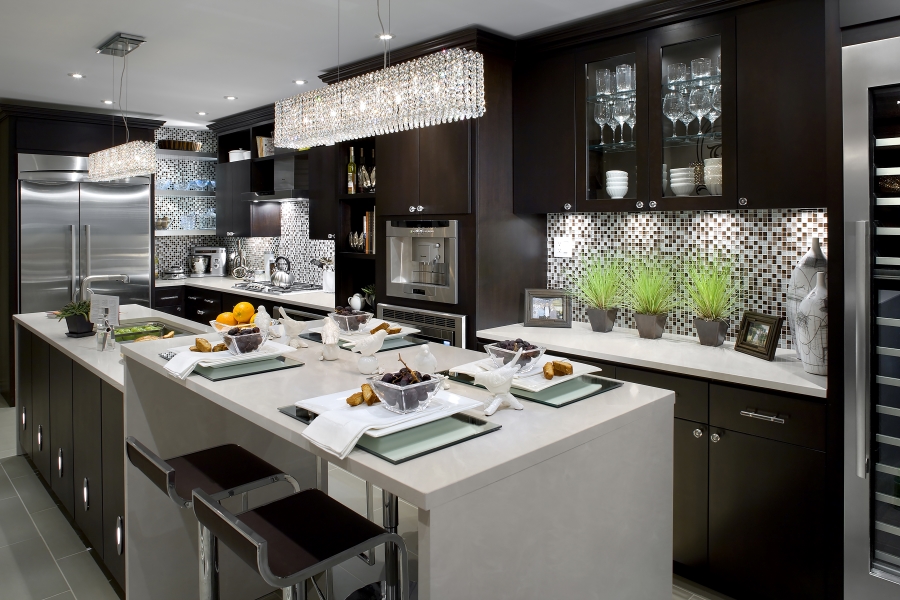
What are resin countertops?
Resin countertops are engineered surfaces created by blending different types of resins with hardening agents. This causes them to become solid form to create the countertop surface. These countertops offer a seamless, non-porous, and visually stunning finish. Two of the most popular types of resin countertops are epoxy resin and phenolic resin.
Epoxy resin countertops
Epoxy resin countertops are known for their exceptional durability and resistance to heat and chemicals. These characteristics make them ideal for laboratory and industrial settings where stringent requirements are essential. Epoxy resin countertops are fabricated by layering epoxy resin on a substrate, such as plywood or particleboard, and then applying heat and pressure to create a solid, glossy surface.

Phenolic resin countertops
Phenolic resin countertops, on the other hand, offer a different set of advantages. These countertops are more cost-effective compared to epoxy resin counterparts and provide a higher degree of design flexibility. They are particularly well-suited for areas where frequent cleaning is expected, such as medical bioscience and clinical environments. Phenolic resin countertops are crafted by pressing layers of kraft paper saturated with phenolic resin, resulting in a hard, durable surface.

Epoxy resin vs phenolic resin: pros and cons
Epoxy resin countertops and phenolic resin countertops have their own pros and cons. Let’s dive deeper into the strengths and weaknesses of both epoxy and phenolic resin countertops to help you decide which one is the best fit for your specific needs.
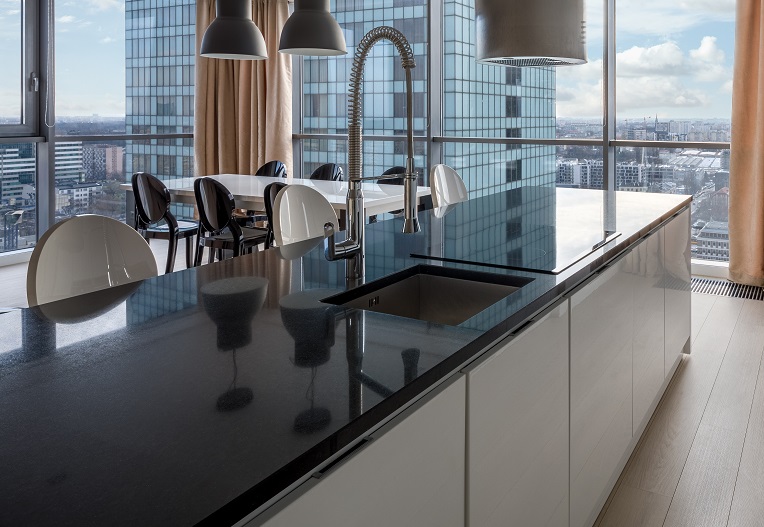
Epoxy resin pros
poxy resin offers two main advantages. It is highly durable and is heat resistant. Epoxy resin countertops are incredibly durable and can withstand the rigors of heavy daily use without showing signs of wear and tear. They excel in high-temperature environments, making them suitable for applications where exposure to heat is frequent.
Epoxy resin cons
Epoxy resin has five major disadvantages. Its disadvantages include that installation is difficult and requires experience, it dries immediately after the first attempt, the curing and application process time take a while, they tend to be more expensive, and they can be somewhat high maintenance.
Let’s get a bit more into the cons of epoxy resin:
Installing epoxy resin countertops can be a complex process that often requires professional expertise. Epoxy resin cures rapidly, leaving little room for error during installation. This means you must work quickly and precisely. The curing process of epoxy resin countertops can take several days, which may disrupt your daily routines. Epoxy resin countertops tend to be more expensive than some alternative materials, which can be a factor to consider for budget-conscious buyers. While they are resilient, epoxy resin countertops can require ongoing maintenance to preserve their glossy appearance and prevent scratches.
Epoxy resin cons
Phenolic resin has two major pros of moisture- and bacterial-resistance and it is easy to fabricate and create a customized design. Phenolic resin countertops offer excellent resistance to moisture and are inherently antibacterial, making them suitable for environments where hygiene is paramount like a doctor’s office or other clinical lab. Phenolic resin countertops are also easier to work with during installation and can be customized to suit various design preferences. That way you can achieve just about any aesthetic you are looking for with a phenolic resin countertop.
Phenolic resin cons
Phenolic resin has one major disadvantage of low toughness and it’s curing reaction to an open flame. Phenolic resin countertops are typically not as tough as epoxy resin countertops. They can react poorly to open flames. Therefore, before deciding on a phenolic resin countertop you would need to think through the uses of the countertop as it would not be the best idea to put a phenolic resin countertop next to any sort of open flame.
Who should consider countertop resin?
Everyone should consider countertop resin for any countertop surface. Epoxy resin countertops are an excellent choice for those seeking a modern and creative look. They also work wonders as a refinishing option for old countertops, breathing new life into your space. The glossy finish achieved after the resin cures can give your surface a reflective and polished appearance, enhancing the overall aesthetics.
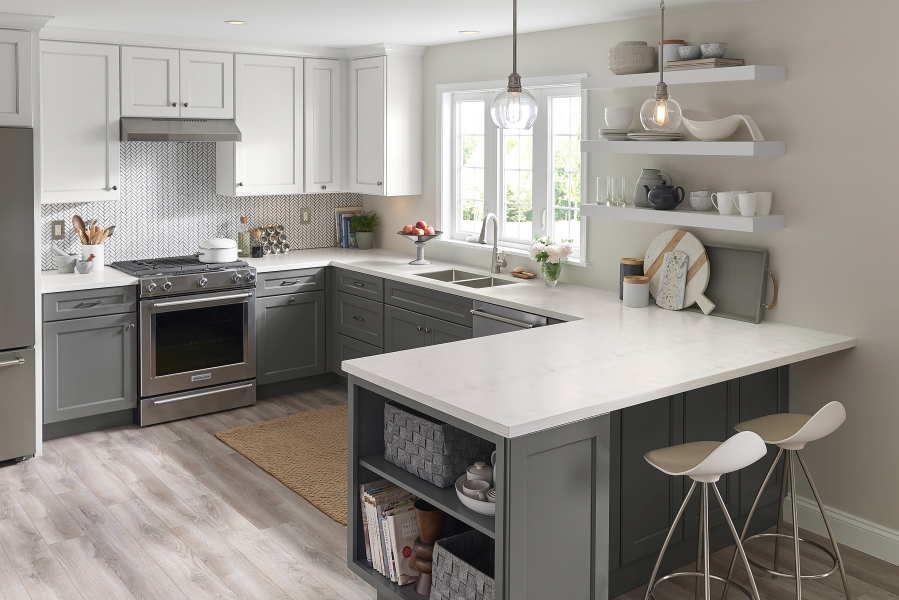
Alternatives to countertop resin
While resin countertops offer numerous benefits, the installation process may be intimidating for some. If epoxy resin countertops do not align with your preferences or requirements, consider these alternative options:
Quartz and solid surface countertop
Quartz and solid surface countertops are popular choices for their durability, ease of maintenance, and wide range of color and pattern options. They offer a more straightforward installation process compared to resin countertops.
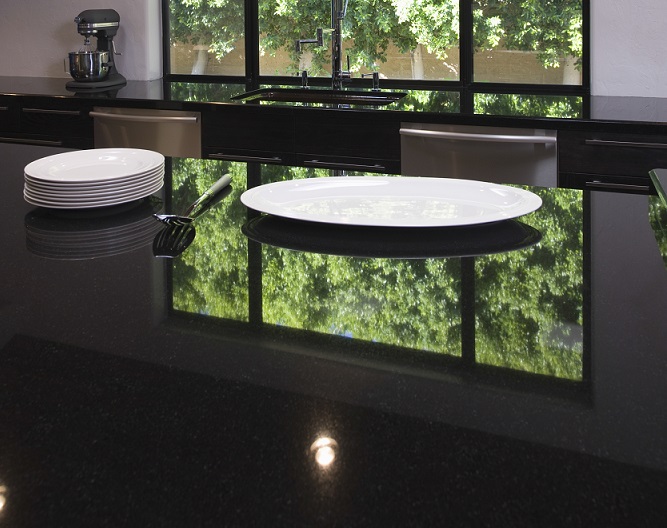
Recycled glass countertop
Recycled glass countertops are an eco-friendly choice that combines the beauty of glass fragments with resin binders. They provide a unique and colorful appearance while being easy to maintain.
DIY tile countertop
For those looking for a cost-effective and customizable solution, do-it-yourself tile countertops are an attractive option. With a variety of tile materials and designs available, you can create a countertop that matches your style.
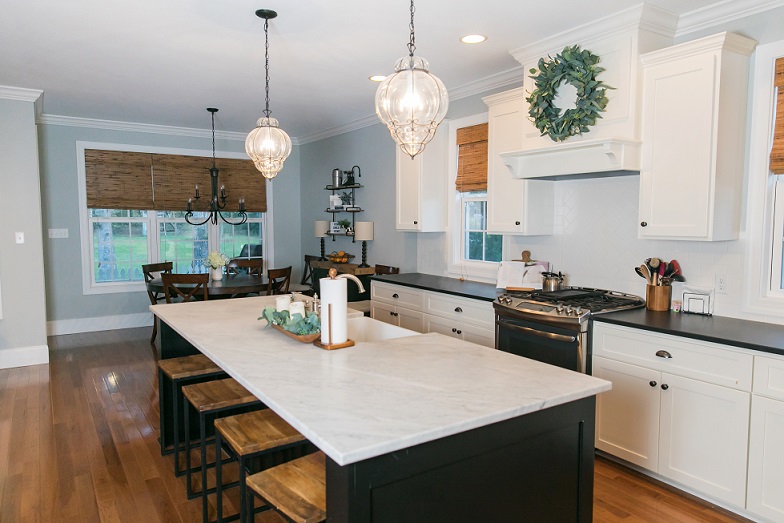
Contact us
If you want to explore the world of countertop resin further and learn about the options available, including epoxy resin and phenolic resin countertops, feel free to contact us at LX Hausys. Our experts are here to assist you in making the best choice for your countertop needs.
Whether you are renovating your kitchen or working on a different countertop project in a clinical lab, we have the solutions to meet your requirements. Contact us today to get started on your journey to the perfect resin countertop!
